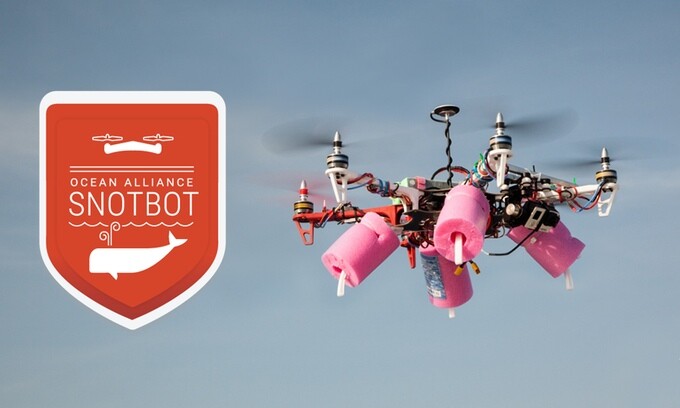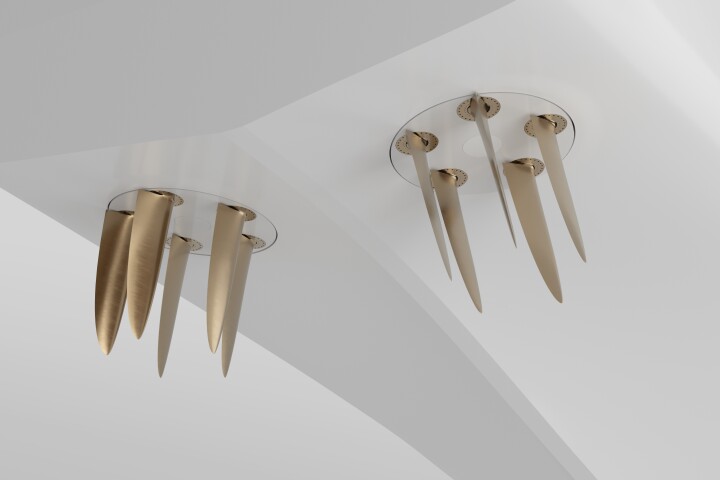Gathering good biological data about whales can be difficult without bugging the big mammals with large planes, boats, tags, sampling darts or even biopsies and lethal study techniques. Instead, the Ocean Alliance wants to send custom drones to collect whale mucus – aka snot – for study and they've enlisted the help of Sir Patrick Stewart for the crowdfunding effort to finance the project.
Collecting data on whales by chasing them with loud motorboats and/or shooting them with sampling darts is not only inconvenient for all parties involved, but the Ocean Alliance also believes it can lead to inaccurate data due to elevated stress levels caused by the invasive techniques.
The organization's proposed solution is to use purpose-built drones called "Snotbots" created through a partnership with the Olin College of Engineering that can trail whales near the surface of the ocean, while the actual research team ideally stays about a half mile back. The drone would fly above the surface of the water and the unaware whale, where it can cruise into the spout expelled from the whale's blowhole to collect a sample of whatever the whale is exhaling from its lungs, including snot that can then be analyzed.
We've seen autonomous aerial and marine vehicles used to keep track of whales in the past, but this project goes a step further by actually returning samples for research. Researchers say that a lung lining sample from a whale can provide information about environmental toxins, bacteria and viruses in the animal's system, as well as DNA and hormones that provide insight into reproductive cycles and stress levels.

The Ocean Alliance team says it's developed and tested drones for the task that are waterproof and "snotproof" and can transmit data from a significant number of sensors. Rather than seek out grant funding to deploy the new technology on whale-tracking expeditions with no guarantee of securing funds, they've launched a Kickstarter campaign with the goal of raising at least US$225,000 to send the Snotbots to study three different types of whales off the coasts of Alaska, Patagonia and Mexico's Baja peninsula. Patrick Stewart is a long-time supporter of the organization and has lent his celebrity to the initiative in the campaign pitch video.
Ocean Alliance founder Roger Payne is something of a celebrity in his own right when it comes to the world of whales, having been the first to discover the song of humpback whales in 1967. As such, audio copies of songs of the humpback whales and videos of the Whales IMAX film featuring Payne and Stewart are among the incentives offered to crowdfunding backers of the campaign. Big money backers are offered the chance to join the team on one the actual snotbot expeditions for a $10,000 donation.
As of this writing, the campaign has raised a little over 10 percent of its goal, with 29 days left to run. If all goes to plan, the actual Snotbot expeditions are expected to take place in 2016.
The Kickstarter pitch video featuring Sir Patrick Stewart can be viewed below.
Sources: Ocean Alliance, Kickstarter









